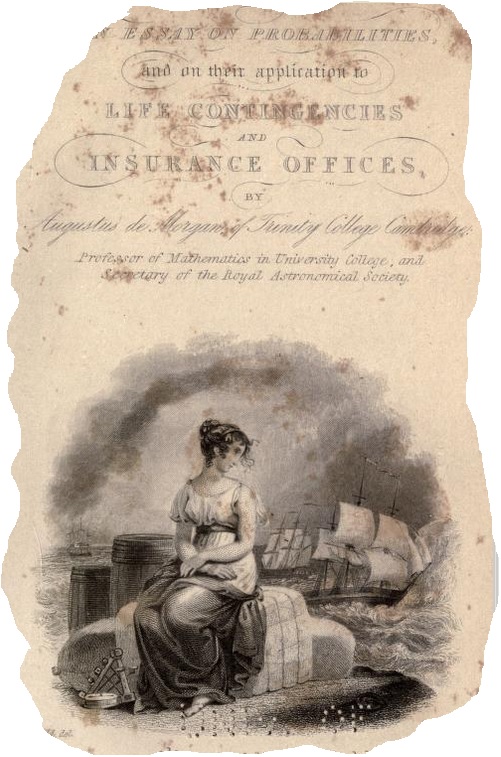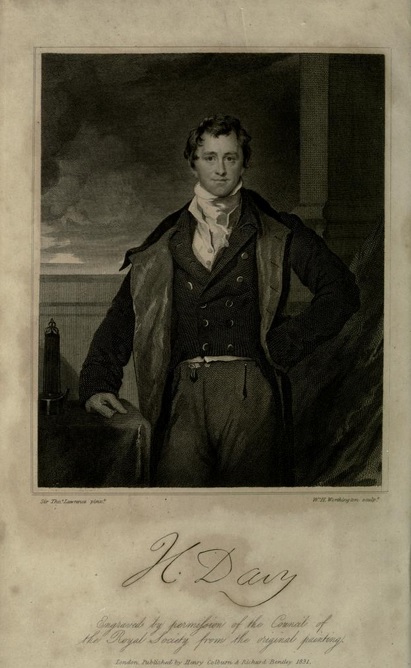TECHNICAL NOTE: The great majority of the links below are to
scanned antique books at the Internet Archive, most of them
anthologies. Poems frequently run for several pages; when coming
to the apparent end of a poem, turn the page to make sure!
Perhaps actually about art rather than science,
but applicable to either.
Darley, George: An Irish poet and songwriter of the early 1800s,
he was also a serious mathematician and the author of a popular astronomy
book. Hardly any of his
poems reflect these interests.
A pilgrim asks a flower how many drops of dew
adorn her; the "pouting Flower" peevishly answers by setting an arithmetic
problem in rhyme.
Darwin, Erasmus:
Däubler, Theodor:
Meaning the stars, possibly.
Das Nordlicht
An epic poem which is both a critique of technological society and
the elaboration of a pseudo-scientific mythology involving the aurora,
lava-pools, and the sun.
Davidson, John: He trained as
a chemical engineer; science and technology
are significant themes in his work. Reading his descriptive poems about
places (especially "The Crystal Palace") can
feel very like being there in person --- but one might wish for a
more upbeat travel-companion!
An ode to Fleet Street, emphasising the hardware side of
the media world.
The Crystal Palace
This long and vivid
poem begins with a description of
Sir Hiram Maxim's Captive Flying Machines, ancestor of
countless later carnival rides and of NASA's training devices. It goes on
to decry the ugly new architecture of steel and glass which
the Crystal Palace pioneered and the psychological effect of
the Exhibition on visitors: "Thus, passive all // Like savages bewitched,
submit at last // To be the dupes of pleasure, sadly gay."
Eclogues ARTIST: "I mean that electricity and steam have set a
barbarous fence about the earth, and made the oceans and
the continents preserved estates of crafty gather-alls."
VOTARY: "We are fire, cut off and cooled a while, and shall
return ... to be again candescent in the sun ... Arise and let
us sing; and, singing, build a tabernacle even with these ghastly
bones."
The Feast of St. Martha Four characters debate the
pros and cons of technology. Includes the interesting lines
"The earth itself is now inspired // It knows delight, it feels
distress // Ten thousand wires and nerves unwired // Have given the
globe self-consciousness."
Fleet Street "... was once a silence in the ether." This rather
amazing poem depicts all of the street's history, from the formation
of the solar system until the Edwardian Age, coexisting in a single Now.
The discussion of the chemical elements anticipates the "we are
star-stuff" rhetoric of Carl Sagan -- but then, a little disappointingly,
turns it into mild social satire.
Railway Stations Turns a trip by rail around Greater London
into a spiritual odyssey.
Snow Looking at ice crystals under the microscope inspires
the poet to consider how infinite complexity can arise from
simple geometry.
The Testament of Sir Simon Simplex concerning Automobilism
Trains promoted democracy and socialism, but the automobile will
restore aristocratic individualism. Although this is
clearly a satire, it isn't obvious from the poems where Davidson's
political sympathies lay.
Davies, William Henry:
Davy, Humphry: The great chemist had very high poetic aspirations
which he never quite fulfilled.
Artists and natural philosophers
conquer the passions and attain a quasi-godlike state.
The Song of Pleasure Contrary to the claims of the previous
poem, one should live for pleasure, and specifically love, because
"No living joys, no transports burn // In the dark sepulchral urn."
Ode to Saint Michael's Mount in Cornwall
Once the poet liked the deceitful
fairy Fancy, but now he prefers Divine Philosophy.
The Tempest About a storm, and how it can serve as a metaphor
for emotional storms.
Ode to Mount's Bay in Cornwall The
story of a Protestant woman drowned in a shipwreck at Land's End
while trying to escape sectarian violence in Ireland. Davy's
Romanticism here takes on a strong Celtophile tinge; his
feminist views are also in evidence.
Fair-Head
About a spectacular geological formation in Ireland.
Prologue to John Tobin's comedy
The Honey Moon. Tobin had died after
finishing the play, but before writing the customary verse preface;
his friends asked Davy to supply one.
Spinosism
Expressing religious views common enough among the Romantics, though
whether Spinoza would have accepted them seems less certain.
Yours is the Harp of Ages & the Voice [At the blog Theories &
Methods]
About:
Dawes, Rufus:
-
The Deluge
-
Ode
"... written for the Tenth Annual Fair of the American Institute."
De Morgan, Augustus: Eccentric mathematical genius
and logician.
De Morgan claimed that he did not
write the song, but found it among the papers of an unnamed deceased friend.
He admitted, however, to having "restored" it.
The Bible:
Mild anti-religious satire. De Morgan kept his exact
religious views secret,
but was generally considered an agnostic, if not an
atheist. His wife, however, was
an enthusiastic Spiritualist, and because of her he was
one of the first of the many Nineteenth Century scientists
who took "psychic phenomena" seriously.
Change of Address:
Title says it all.
Curry Powder:
During the Irish Famine, the Duke of Norfolk suggested that peasants would experience less acute hunger pains if
they flavoured their food with curry.
A Fine Old Irish Gentleman:
According to De Morgan, this is an American song to which he made
additions. Somewhat racist in
its portrayal of the Irish, although De Morgan had many
Irish friends, and sent the poem in a
letter to Hamilton (who was proudly Irish).
Lord De Tabley:
A biologist-poet, but his verse does not particularly
reflect his science.
[London: Chapman & Hall, 1903]
Deutsch, Babette
-
The Fourth Dimension: Just a metaphor,
like "romantic triangle", but indicative of how
the idea of higher dimensions made inroads into
the general imagination.
Dewart, Edward Hartley: a Canadian poet.
Fairly straightforward.
The Polar Sea Reflects the Nineteenth Century belief in
open water at the North Pole.
Dickinson, Emily:
A number of her poems express hostility
to (some) Nineteenth Century scientists' desire to pigeon-hole all
the phenomena of experience. However, this does not necessarily make her
"anti-science" in the broader historical perspective.
"Disdaining men and oxygen // For arrogance of them."
Aurora is the Effort
Arguably one of her best quatrains, although little known.
The Balloon
Meaning toy balloon, but better than most aëronautical poetry.
The Brain
Experiment
Faith
Almost certainly not
intended as an anti-religious poem, but widely read as one in
the Twentieth Century.
It Troubled Me As Once I Was
Perception Niels Bohr would have liked this one.
The Reticent Volcano
Dixon, Richard Watson:
Under-appreciated clergyman-scholar, one of the founding Pre-Raphaelites.
Meaning matter and soul. "Canst thou, oh atom, tell ... why after losing thee the form
remained the same?"
To the Earth Planet
Are you the only one with intelligent life?
Inscience
Psychological poem using astronomical metaphors.
Sir John Franklin
The Silent Heavens
The depressing effect of the Copernican world-view.
The Spirit of the Sphere
... is present in all phenomena. (Dixon doesn't seem to mean God;
perhaps he means consciousness or the soul?)
Dobson, Austin:
Dowden, Edward:
-
The Inner Life
A long poem about searching for God in the disenchanted
modern universe. An interesting aside about
"Darwinism in morals" raises the question of whether
final causes might exist in evolution.
Doyle, Sir Francis Hastings:
Duganne, Augustine:
-
The Artisan
From The Iron Harp.
-
Injuresoul: A Satire for Science
The title refers to the famous agnostic Robert Ingersoll, but the poem also attacks
Darwinism, mainstream science, and rationalism in general. Duganne's endnotes
present his own extremely unorthodox, vaguely alchemical "scientific" theories,
which he intends to be more compatible with Christianity: "Nitrogen,
hydrogen, and oxygen ... eliminate those three gases ... and we should again breathe the air Adam breathed in
Eden."
-
Men of Thought
From The Iron Harp. Includes the memorable, or at least unusual,
inspirational lines: "Insects build the coral isles // Insects pierce the ocean
through: // Ye are men, and will ye quail // When the insect did
not fail?"
-
The Mission of Intellect
Dunn, Cyrus George: Obscure American poet.
A pseudo-Miltonic epic; the content is almost entirely religious.


